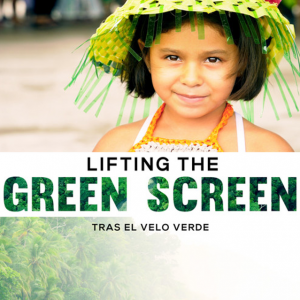Written by Jonah Azurin
Be sure to charge your phones, tablets, laptops, and check your casting devices for your smart TV’s! The 2020 Global Peace Film Festival (GPFF) begins September 21 and ends October 4.
For the past 17 years, GPFF has used their platform to educate viewers on important issues through the power of entertainment. Starting Monday, September 21, 2020, which is also the International Day of Peace, GPFF will offer more than 20 feature films for virtual screening. This year’s selection will spotlight critical themes such as environmental justice, civil rights, LGBTQ+, voting, and human rights.

Featured screenings include The Third Harmony (2020) directed by Michael Nagler, Birddog Nation (2020) directed by Sophie Sartain, and Our Gorongosa (2019) directed by James Byrne, which has been receiving a lot of buzz and making its film festival rounds this season. GPFF also has a separate short film selection available to view for free around the world at https://peacefilmfest.org/online-film-festival/.
While most of the feature films will be available worldwide through GPFF, only a few are available in the U.S. and North America; two are available only in Florida. Be sure to check the film guide for further geographic restrictions and availability.
Aside from virtual screenings, GPFF announced an eventful program with virtual panel discussions, filmmaker talks, limited in-person events, and the Student Peace Art Exhibit.
Visit https://peacefilmfest.org/ or follow @peacefilmfest on Facebook, Instagram and Twitter for more information about tickets, passes and the Festival schedule.
Below is a rundown of a few of the feature films that will be available beginning on Sept. 21:
Swing State Florida
USA, 2019, 90 Min., Documentary
Director: Samuel George
Swing State Florida takes the viewer on a journey through three critical Florida communities: migrant agricultural workers in Immokalee, the historically African-American Liberty City area of Miami, and the Hurricane-stricken panhandle. In each place, we hear from people facing challenges from climate change and migration, to political and economic marginalization. The documentary film, directed by the Bertelsmann Foundation’s Samuel George, mixes intimate portraits with expert commentary to give a vision of Florida in the run-up to the 2020 election. The challenges documented in the film present struggles replicated in swing states across the country.
Keyboard Fantasies: The Beverly Glenn-Copeland Story
UK, 2019, 63 min., Documentary
Director: Posy Dixon
As a sci-fi obsessed woman living in near isolation, Beverly Glenn-Copeland wrote and self-released Keyboard Fantasies in Huntsville, Ontario back in 1986. Recorded in an Atari-powered home studio, the cassette featured seven tracks of a curious folk-electronica hybrid, a sound realized far before its time. Three decades on, the musician – now Glenn Copeland – began to receive emails from people across the world, thanking him for the music they’d recently discovered. Courtesy of a rare-record collector in Japan, a reissue of Keyboard Fantasies and subsequent plays by Four Tet, Caribou and more, the music had finally found its audience two generations down the line. Keyboard Fantasies: The Beverly Glenn-Copeland Story sees the protagonist commit his life and music to screen for the first time – an intimate coming of age story spinning pain and the suffering of prejudice into rhythm, hope and joy.

Lifting the Green Screen
USA, 2020, 90 min., Documentary
Director: Claudia Giannetto
An ethnographic documentary that showcases the everyday complexity of conservation in practice in Costa Rica’s biodiversity hot spot – the Osa Peninsula – Lifting the Green Screen (Tras el Velo Verde) opens a window into the lives of activists, farmers, and entrepreneurs.
Concurrent with the growing sense of alarm regarding environmental degradation, climate change, and species loss, Costa Rica has been increasing its status as a leader in ecotourism, a “greening” nation of remarkable biodiversity, and a country that centralizes its environmental politics in influential ways. Our documentary, Lifting the Green Screen, follows Costa Rican environmentalists, burgeoning campesino-led ecotourism initiatives, and socio-environmental conflicts in the rural and biodiversity-rich Osa Peninsula. Rather than focusing only on the famed gold miners or extolling the unique biodiversity of the region and its “protectors,” this film more broadly covers the debates over environmentalism in practice and local responses to land controls. It explores practices at the interaction of protecting subsistence, biodiversity conservation, and ventures afforded by the growing tourism dominated economy.

